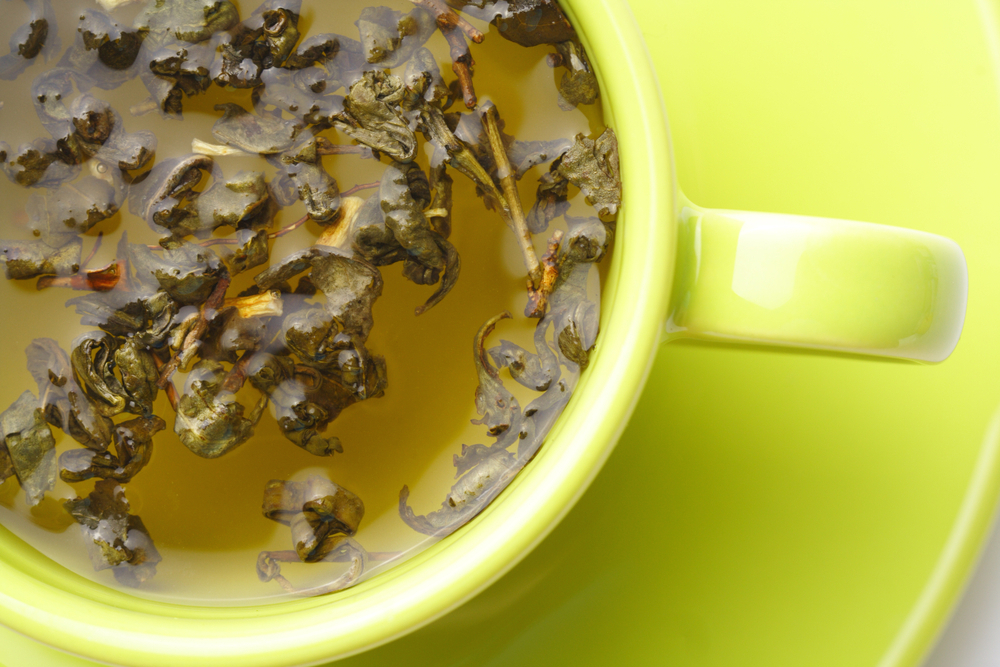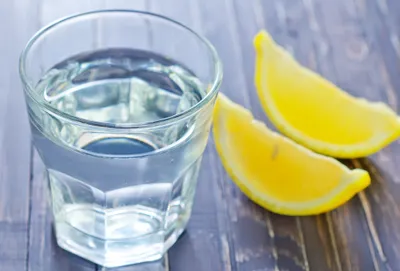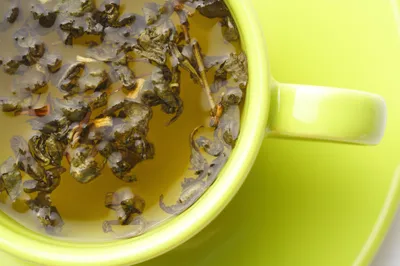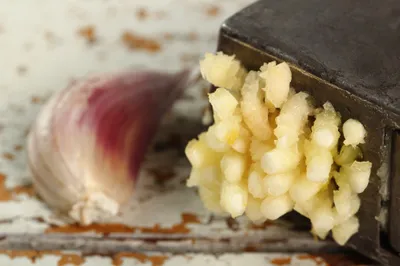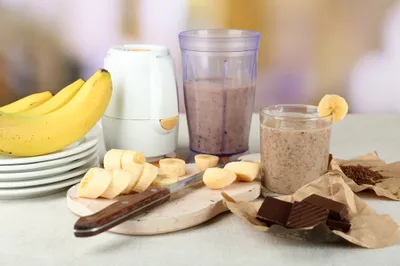You might slap on deodorant in order to mask unpleasant body odor (a combo of sweat and bacteria), but did you know that the source of that foul stank emanates from your insides and out via your sweat glands? According to research conducted at the University of California, each of us have our own signature body smell, which is largely determined by a mix of health, genetics, and personal hygiene. However, that reek developing under your arm pits is also largely dependent on your diet, which means eating certain foods can turn foul body odor to flowery aroma.
Here are seven natural ways to beat bad BO…
1. Water
Perhaps the most obvious way to beat body odor is to flush it out with clean, pure, cool, water—and lots of it! Health experts recommend good hydration for flushing out smelly toxins within your liver, colon, and kidneys and also to make digestion and bowel movements more efficient.
Adding a bit of freshly squeezed lemon to a tall glass of H20, especially first thing in the morning, will help cleanse and detoxify your digestive system for the day ahead. Drinking plenty of water will also ensure undigested food and toxins don’t get trapped and rot in your digestive tract, creating bad BO.
2. Probiotics
Sure yogurt and kefir are obvious sources of probiotics, but fermented foods like kimchi and apple cider vinegar (with the mother) will also do their part in keeping bad gut bacteria at bay. Probiotics from fermented foods encourage the production of healthy bacteria, which aids in the breakdown of undigested carbohydrates in the gut, preventing gas.
A research study in the journal, BMC Gastroenterology, monitored the abdominal woes and BO of a group of healthy adults who consumed probiotics (i.e., Bifidobacterium, B. animalis, or Lactobacillus) over a 4-week duration. Findings showed that those with a probiotic-rich diet experienced fewer instances of abdominal inflammation, gas, cramps, flatulence, and body odor compared to non-probiotic consumers.
3. Chlorophyll
Health Services researchers at Columbia University recognize chlorophyll, a chemical compound that absorbs light for plant energy and gives algae and plants their green pigments, as a natural odor neutralizer in the colon and bloodstream.
Known super foods—such as cilantro, wheatgrass, alfalfa, parsley, other leafy greens, and loose leaf green tea—harness the detoxifying benefits of chlorophyll and antioxidants to cleanse toxins and free radicals from the inner body. This makes foods rich in chlorophyll an excellent natural remedy for bad body odor and foul breath.
4. Garlic
Even though garlic is often referred to as the “stinking rose” for it’s pungent odor that sticks with you offensively after a pasta dish or piece of pizza—eating garlic has actually been linked to internal and external healing. So while noshing garlic stuffed olives might leave you with breath too foul for a goodnight kiss, eating garlic over the long-term can protect you against many viruses and bacterial illnesses that can cause chronic bad breath and foul body odor.
The National Cancer Institute claims that garlic is linked to reduction of certain cancers of the gastrointestinal tract. Garlic gleans it’s medicinal benefits from allicin, a phytochemical with powerful antioxidant and antibacterial abilities. Allicin works as a sort of internal deodorant—working from the inside, out—as it cleanses the blood. Just be sure and skill scarfing garlic cloves until after a few dates!
5. Avoid Refined Sugar
Texas-based chiropractor, certified clinical nutritionist, and health pioneer, Edward F. Group, links patients with chronic body odor (halitosis and sweat) with low levels of beneficial bacteria. Over years of practice, Group has found that patients with diets high in refined sugar and frequent antibiotic use also tend to complain of bad BO.
Antibiotics and refined sugar are both linked to low levels of healthy gut bacteria and chronic yeast infections. Bodies overrun with Candida yeast cause a lack of friendly bacteria in the intestines and yeast overgrowth, which in turn converts sugar to alcohols that cause foul body odor.
6. Zinc
Zinc is a well-employed body odor fighter, which is the reason it’s often featured as a primary ingredient in commercial deodorants and oral hygiene products (i.e., toothpaste). The essential trace mineral has a primary role in regulating the body’s internal waste management and detoxification process.
According to research from the University of Maryland School of Medicine, zinc contains antioxidant properties, meaning it helps protect cells in the body from damage caused by free radicals. This is why zinc deficiency is often linked to bad or chronic body odor. Taking a zinc supplement may be one way to boost stores. However, eating foods rich in zinc—such as nuts, pumpkin seeds, and seafood—will also keep zinc at a fragrant levels, inside and out.
7. Magnesium
Magnesium is an essential yet often overlooked mineral in the human diet. The powerhouse nutrient plays an integral role in multiple body functions—including retaining memory to controlling and eliminating bad body odor. Foods highest in magnesium include dark leafy greens, fish, beans, avocados, bananas, nuts and seeds, whole grains, and dark chocolate.
Way back in 1928, magnesium gained the attention of a French clinical surgery professor and (later a) member of the Académie de Médecine, Dr. Pierre Delbet, who discovered healthy patients with bad body odor (sweat and breath) found aromatic solace in magnesium supplements. Dr. Delbet noted that magnesium worked as a natural deodorizer, increasing healthy intestinal flora, and in turn banishing stinky flatulence and fecal odor, and preventing offensive-smelling perspiration.
